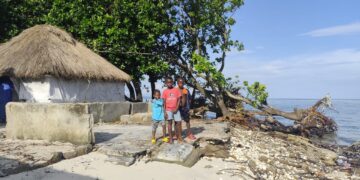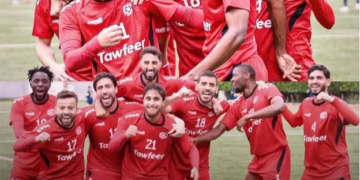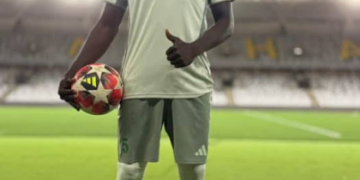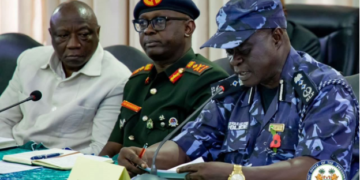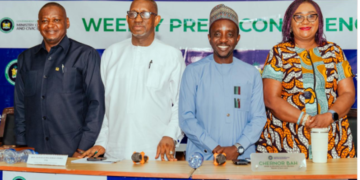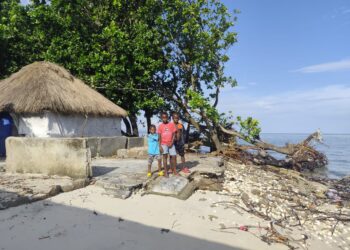By Alpha Amadu Jalloh , Author of Monopoly of Happiness: Unveiling Sierra Leone’s Social Imbalance
Yet again, the Sierra Leonean government is preparing to spend millions, ensuring that the ordinary people continue to suffer as they struggle to survive, living hand to mouth. But what does this government, like the many before it, mean when it speaks of independence? What exactly do we have to show for our so-called sovereignty? Sierra Leone is nothing but a nation in bondage. We are not free, and we shall never be free or independent, given our chronic dependence on other nations and international organizations for even the most basic means of survival. Despite being blessed with abundant natural resources, enough to make us richer than Qatar, the United Arab Emirates, and other economic giants, we remain the global poster child for poverty, hunger, and despair.
From international financial agencies to humanitarian organizations, from technical support groups to environmental and food security agencies, Sierra Leone is not recognized as an equal partner but rather as a helpless subordinate, a nation perpetually surviving on handouts. Whenever Sierra Leone is mentioned on the world stage, it is for the wrong reasons: disease outbreaks like Ebola and COVID-19, gross mismanagement of resources, endemic corruption, senseless violence, incompetent security services, and dishonest leadership. The rot permeates every sector: our government, civil service, education system, media, healthcare, and every institution meant to serve the people. Everything in Sierra Leone is fundamentally flawed, and yet we continue to deceive ourselves that we are on the path to progress.
April 27th, the day we mark our so-called independence, should not be a day of celebration but a day of mourning. It is the day we officially lost our way. The illusion of freedom was given to us, but we have never truly been independent. Instead, we have remained trapped in a vicious cycle of dependency, misgovernance, and underdevelopment. Independence is not merely about political sovereignty; it is about self-sufficiency, dignity, and the ability to stand on our own feet without begging for survival. But in Sierra Leone, even the smallest things—basic healthcare, food security, and education—must come from external donors. How, then, can we claim to be free?
Few nations are as blessed as Sierra Leone. Our lands are rich with gold, diamonds, bauxite, rutile, iron ore, and a wealth of untapped minerals. Our coastal waters are filled with some of the richest fisheries in the world. Our forests, fertile lands, and vast agricultural potential should make us a food-secure nation, feeding not only ourselves but also exporting surplus to the rest of the world. Our youthful population, one of the youngest in the world, should be an engine of economic growth, innovation, and industrialization. And yet, despite all these blessings, we are one of the poorest nations on earth.
Qatar and the United Arab Emirates, nations with far fewer resources than we have, transformed themselves into economic powerhouses in a matter of decades. They built world-class infrastructure, created global business hubs, and provided their citizens with unmatched social services. Meanwhile, in Sierra Leone, we still lack access to clean drinking water. We still have roads that crumble after the first heavy rain. We still have hospitals where people die from treatable conditions because of a lack of medicine and proper facilities. We still have schools where children sit on the floor because there are no desks. And yet, our leaders travel first class, live in mansions, and celebrate independence with fanfare as though we have anything to be proud of.
For decades, our governments, past and present, have normalized dependency. Rather than build sustainable economic policies that empower citizens, they look to international donors for survival. We borrow money recklessly, mismanage funds, and then go back with begging bowls for debt relief. Our national budget is often supplemented by foreign aid, with essential services like education and healthcare relying on the goodwill of NGOs and international partners. This is not independence; this is modern-day economic slavery.
We are a nation that cannot fund its own elections without international assistance. We are a nation that cannot sustain its own military without foreign training and support. We are a nation that cannot provide basic food security for its people without importing rice from Asia, despite having vast, fertile lands. Is this what independence looks like?
At the heart of our perpetual bondage is the failure of leadership. From the presidency to the civil service, we are plagued with dishonest and self-serving individuals who prioritize personal gain over national progress. Corruption is not just an issue; it is the foundation upon which our political and economic system operates. Government contracts are awarded not on merit but on political connections. Public funds meant for development are looted with impunity. The civil service, which should be the backbone of national growth, is instead a breeding ground for inefficiency and nepotism.
We have normalized mediocrity and corruption at every level. When government officials are caught embezzling funds, they are neither prosecuted nor held accountable. Instead, they are often rewarded with higher positions or allowed to retire comfortably with stolen wealth. The result? A system that discourages honesty and hard work while rewarding theft and incompetence.
While our leaders live in luxury, the average Sierra Leonean survives on less than a dollar a day. Unemployment is rampant, forcing many of our young people into crime, prostitution, or dangerous migration routes in search of a better life. Our healthcare system is a death trap. Our schools churn out graduates with no job prospects. Our police and military, meant to protect and serve, have become tools of oppression, brutalizing ordinary citizens instead of defending their rights. Our democracy is a façade, elections are rigged, opposition voices are silenced, and the will of the people is ignored.
We are a country where the basic necessities of life—food, water, electricity, healthcare, and security—are luxuries. A country where the future remains uncertain for generations to come.
As April 27th approaches, our leaders will once again gather in pomp and pageantry, spending millions to celebrate an independence that does not exist. They will give speeches filled with empty promises, pretending that we are making progress while the reality on the ground tells a different story. But for the ordinary Sierra Leonean, there is nothing to celebrate.
We have been independent in name only. The true meaning of independence, self-sufficiency, prosperity, and dignity remains a distant dream. Until we break free from the chains of corruption, dependency, and failed leadership, we will continue to be a nation in bondage.
April 27th should not be a day of celebration. It should be a day of mourning, a day of deep reflection on how far we have fallen. We must ask ourselves, How long will we continue to be slaves in our own land? How long will we allow our leaders to deceive us? How long will we settle for less when we deserve so much more? Sierra Leone, we are not free. And if we do not take bold steps to reclaim our future, we shall never be free.


